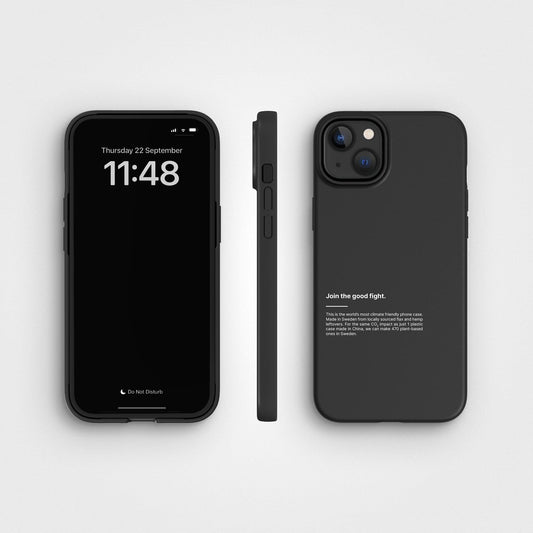In today's rapidly evolving technological landscape, innovation knows no bounds. Among the numerous breakthroughs that have shaped our modern world, synthetic Thermoplastic Polyurethanes (TPUs) have emerged as a remarkable force. These versatile materials are a testament to human ingenuity, offering a myriad of applications across various industries. From aerospace engineering to fashion design, synthetic TPUs have carved a niche for themselves, enabling advancements that were once unimaginable. However, like any scientific marvel, there exists a dual narrative – a reflection of both potential and consequence. As we embark on this journey to unveil the enigmatic realm of synthetic TPUs, we'll delve into their fundamental nature and explore the distinctive features that set them apart. Simultaneously, we'll also shine a light on the less explored, but equally important, negative aspects that warrant our attention.
What are Synthetic TPUs?

Before delving deeper into the world of synthetic TPUs, it's essential to establish a foundational understanding. Synthetic TPUs, or Thermoplastic Polyurethanes, are a class of polymers known for their exceptional versatility and dynamic properties. Unlike traditional TPUs that are derived from natural sources, synthetic TPUs are synthesised through advanced chemical processes, allowing for precise tailoring of their properties to suit specific applications.
Unravelling the Chemistry Behind Synthetic TPUs
The creation of synthetic TPUs involves an intricate dance of molecules and reactions. Chemically, these materials are composed of alternating hard and soft segments, a structural arrangement that imparts unique characteristics. Through a series of controlled reactions, chemists can manipulate the composition and arrangement of these segments, resulting in TPUs that exhibit a wide range of mechanical, thermal, and chemical properties.
Key Characteristics that Make Synthetic TPUs Stand Out
The allure of synthetic TPUs lies in their exceptional attributes, making them highly sought after across industries. These characteristics include:
- Flexibility and Elasticity: Synthetic TPUs can stretch and recover their shape, making them ideal for applications requiring resilience and durability.
- Abrasion Resistance: Their resistance to wear and tear ensures longevity in demanding environments.
- Chemical Compatibility: Synthetic TPUs can withstand exposure to various chemicals, expanding their potential applications.
- Customizability: The ability to fine-tune properties allows for tailoring synthetic TPUs to specific needs.
- Weather Resistance: From scorching heat to freezing cold, synthetic TPUs maintain their performance across diverse conditions.
As we continue our exploration, we'll uncover the diverse applications that harness the power of synthetic TPUs, while also delving into their impact on the environment, particularly within the mobile case industry.
Applications of Synthetic TPUs
Versatility at its Best: Diverse Applications of Synthetic TPUs
One of the most captivating aspects of synthetic TPUs is their boundless versatility, allowing them to find a home in an impressive array of industries. Their remarkable combination of mechanical strength, flexibility, and chemical resistance has paved the way for groundbreaking applications that span far beyond traditional boundaries. From high-performance sportswear to medical devices, synthetic TPUs continue to redefine what is possible in material science.
From Aerospace to Fashion: Industries Harnessing Synthetic TPU Power
In the aerospace sector, where rigidity and durability are paramount, synthetic TPUs have found their calling as coatings, seals, and shock absorbers, enhancing both safety and efficiency. On the other end of the spectrum, the fashion industry has embraced the tactile appeal and adaptability of synthetic TPUs, incorporating them into footwear, accessories, and even avant-garde designs that blur the line between art and utility.
Revolutionising the Mobile Case Industry

However, one of the most remarkable and consumer-facing transformations has occurred in the mobile case industry. Synthetic TPUs have revolutionised the way we protect and personalise our smartphones. Gone are the days of clunky, rigid cases. Instead, synthetic TPUs have ushered in a new era of sleek, form-fitting protection that can absorb shocks and withstand daily wear and tear. These cases not only offer enhanced device safety but also provide a canvas for creative design, enabling users to showcase their personal style.
Exploring the Environmental Impact of Synthetic TPUs
As we stand in awe of the versatile applications and boundless potential of synthetic TPUs, it's crucial to shift our focus to the broader picture – their impact on our delicate ecosystem. While these innovative materials have undeniably propelled industries to new heights, we must address the inherent environmental challenges they pose. The same characteristics that grant synthetic TPUs their remarkable qualities, such as durability and resistance, also lend themselves to a significant persistence in the environment.
The Ecological Footprint: Understanding the Lifecycle of Synthetic TPUs
- To truly gauge the ecological impact of synthetic TPUs, it's imperative to follow their lifecycle journey – from their humble beginnings as raw materials to their eventual fate in disposal. This holistic perspective allows us to identify critical junctures where sustainable practices can be implemented to mitigate potential harm.
- During the raw material extraction and synthesis phase, the energy consumption and resource utilisation required for manufacturing synthetic TPUs contribute to their initial footprint. The manufacturing process itself can lead to emissions and waste. When synthetic TPUs are put to use in various industries, their durability often leads to extended product life cycles – a positive aspect in terms of usage, yet a potential challenge when considering disposal.
Synthetic TPUs and Plastic Waste Crisis: Unveiling the Negative Aspect

- Among the various environmental concerns, the shadow of the global plastic pollution crisis looms prominently. Synthetic TPUs, like other plastics, have the potential to fragment into smaller particles over time, eventually breaking down into microplastics. These tiny particles, often invisible to the naked eye, can infiltrate ecosystems ranging from terrestrial environments to aquatic habitats.
- Microplastics pose a grave threat to wildlife as they can be ingested by organisms at various levels of the food chain. The consequences ripple through ecosystems, affecting not only animals but potentially reaching humans through the consumption of contaminated food and water. This alarming potential underscores the need for a balanced approach when considering the conveniences and benefits that synthetic TPUs offer.
Synthetic TPUs and Environmental Concerns in the Mobile Case Industry
As we continue to explore the multifaceted realm of synthetic TPUs, our focus narrows to their specific impact within the mobile case industry. While these innovative materials have undoubtedly transformed the way we safeguard our smartphones, it's essential to shed light on the environmental challenges that have emerged alongside this revolution.
The Dark Side of Innovation: Synthetic TPUs' Role in Mobile Case Industry Pollution
In the pursuit of sleek and durable mobile phone protection, the mobile case industry has turned to synthetic TPUs with enthusiasm. These materials offer an ideal blend of flexibility, impact resistance, and customization possibilities. However, this progress comes with a price. The accelerated adoption of synthetic TPU mobile cases has inadvertently contributed to the pollution burden we face today. As consumers clamour for the latest phone accessories, the manufacturing, usage, and disposal of these cases collectively contribute to the degradation of our environment.
Plastic Predicament: How Synthetic TPU Mobile Cases Contribute to Plastic Waste
The popularity of synthetic TPU mobile cases has amplified the already daunting plastic waste crisis. The durability and longevity that make these cases appealing also mean that they can persist in the environment long after they have served their primary purpose. As these cases are discarded, they join the ranks of non-biodegradable waste, adding to the mountains of plastic pollution making it one of the biggest environmental problems of 2023. Without proper disposal practices and recycling initiatives, synthetic TPU mobile cases become a lasting testament to the complex interplay between innovation and environmental responsibility.
Green Alternatives: Exploring Eco-Friendly Solutions for Mobile Case Manufacturing
Amidst the environmental concerns posed by synthetic TPU mobile cases, a glimmer of hope emerges in the form of eco-friendly alternatives. The mobile case industry stands at a crossroads, offering an opportunity to pivot towards more sustainable practices. Innovators and manufacturers are increasingly exploring greener materials, such as bioplastics, organic fibres, recycled materials and plant based material. These alternatives aim to retain the protective qualities of synthetic TPUs while significantly reducing the ecological footprint associated with their production and disposal.
Amid this landscape of change, "agood company" stands as a beacon of progress. Dedicated to crafting everyday sustainable products, the company resonates with the growing demand for eco-friendly solutions. Anchored in initiatives like the "agood Loop" program, the brand exemplifies its commitment to circular economy. With this pioneering program, customers are invited to partake in an ecosystem of positive transformation. By returning their old cases, they not only foster responsible disposal practices but also unlock the opportunity to embrace a new chapter of sustainability. Through the program, they can seamlessly transition to new, plant-based mobile cases at an exclusive discounted rate. In the hands of "agood Company," sustainability becomes more than a concept – it transforms into a tangible lifestyle, one that empowers individuals to play a pivotal role in crafting a greener future.
Conclusion
Our expedition into the realm of synthetic Thermoplastic Polyurethanes (TPUs) reveals a fascinating yet disconcerting dichotomy. These marvels of modernity, celebrated for propelling industries toward unprecedented heights and embodying human ingenuity, cast an ominous shadow of environmental unease. The magnetic appeal of synthetic TPUs, with their resilience and adaptability, veils the impending consequences they sow within ecosystems. The rapid embrace of synthetic TPU materials in the mobile case industry mirrors a larger narrative of innovation's duality – a pathway to convenience entwined with an escalating plastic predicament. As we traverse the nexus of advancement and ecological mindfulness, vital questions surface: Can we turn a blind eye to the ecological turmoil as synthetic TPUs fracture into inconspicuous microplastics, infiltrating the very essence of our surroundings? Does the allure of innovation outshine the impending toll it exacts? In this uncertain juncture, our choices resonate as beacons of transformation, capable of reshaping the trajectory of innovation, sustainability, and the legacy entrusted to posterity.





























